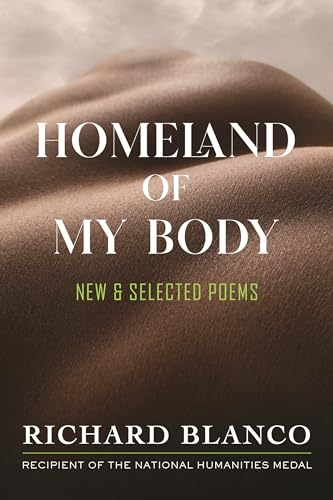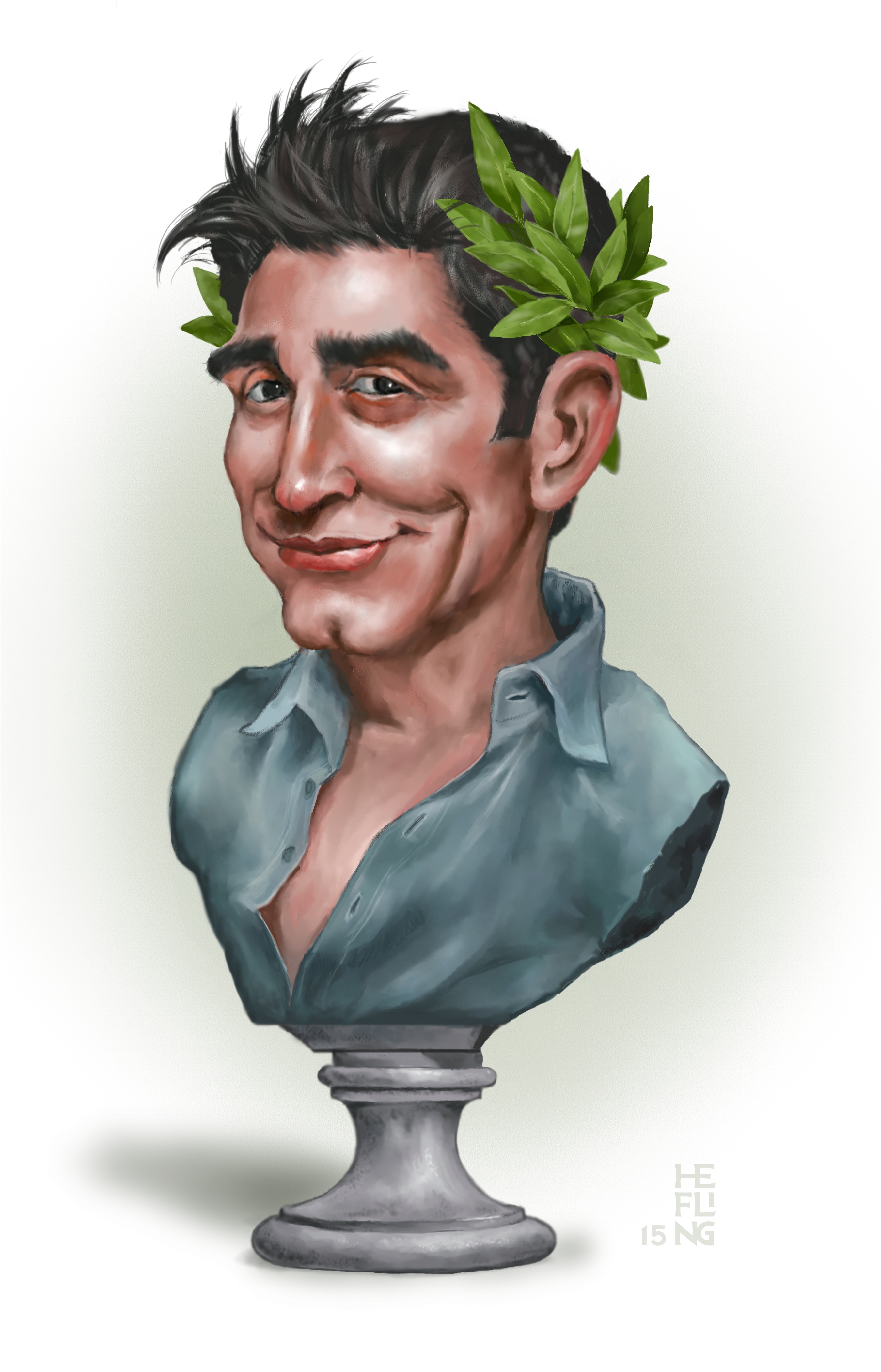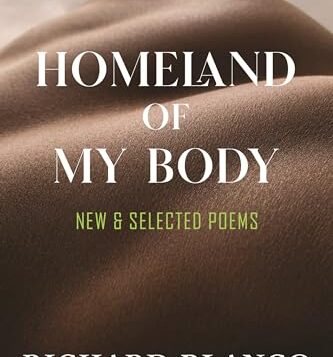 HOMELAND OF MY BODY
HOMELAND OF MY BODY
New and Selected Poems
by Richard Blanco
Beacon Press. 200 pages, $25.95
CUBAN-AMERICAN WRITER Richard Blanco is a quintessentially modern poet, with promotional links throughout the social network and his own life as his primary subject. Add to this his gold-plated credentials as President Obama’s inaugural poet and a National Humanities Medal from Joe Biden, and we have the perfect poster boy for modern poetry. Homeland of My Body is a substantial compilation of poems from four earlier collections, along with many new poems. Blanco includes references to his private life in many of his works, but he does not write primarily about gay life. Instead, it is his Cuban ancestry and family members that shine through like a Havana sunrise. Ancestry, family history, and Cuban customs are so much at the heart of his œuvre that the theme of gay love is moved to the periphery.
That said, Blanco does sometimes write about love and relationships, and this more private side runs through the book like a lovely, shaded stream, slowly emerging from his Cuban roots.
This excerpt from “Why I Needed To” contains a lot of gay Blanco in a small space: “because my husband, who’s still scared of his adoration for me as we embrace sleep, still doubts how long I’ll nest my dreams in his arms … because I have never quite told him: always … because I’m just as afraid of needing him more than myself.” Note the casual domesticity of “my husband,” the cuddly line “how long I’ll nest my dreams in his arms,” and the transitional exit line, the meaning of which is obscure and the tone a bit sappy. The poem goes on for many more stanzas.
Blanco has attracted a certain amount of criticism from traditionalists because of the way in which he combines highly personal subject matter and a tendency to edge into a maudlin tone, of which the previous quotation might be considered an example. Yet there are many poetic lenses that give us the three-dimensional language of art. Consider this passage from “Maine Yet Miami”:
I rise
to the sun of my youth rising over the sea, after
a night’s sleep on a bed of the sand, dreaming or
dreading who I’d become, or wouldn’t. Though
I grew courageous enough to marry a man who
only loves me in English: darling, sweetheart, honey
I love him in my Spanish whispered in his ear
as he sleeps: amorcito, tesoro, mi Cielo.
Okay, this may be on the sentimental side, but it weaves a calm, strong web of family with the passage of time, the crossing threads of culture, and the inner feelings of a relationship. The pause at “or wouldn’t” is particularly effective: we all have a self-image and life plan that are constantly being fine-tuned.
 There are humorous moments in many of the poems: as when God, in the Beginning, creates Cuba rising above the waters and immediately starts tapping his foot to a conga. Much of the material about Cuba and his family flows along as a prose poem or simply a story, with poetic form not really a factor. However, there are plenty of poems that set forth Blanco’s love for the island in tight, ringing word-chimes.
There are humorous moments in many of the poems: as when God, in the Beginning, creates Cuba rising above the waters and immediately starts tapping his foot to a conga. Much of the material about Cuba and his family flows along as a prose poem or simply a story, with poetic form not really a factor. However, there are plenty of poems that set forth Blanco’s love for the island in tight, ringing word-chimes.
Sometimes his family history blends into a poem with a gay theme. The delightful, finger-wagging poem “Queer Theory: According to My Grandmother” is a long menu of things to avoid so you won’t become, or be seen as, a gay kid. Thus: “Don’t watch Bewitched or I Dream Of Jeannie/ Don’t stare at the Six Million Dollar Man … I’ve seen you,” and “Stop click-clacking your sandals, you’re no Tropicana chorus girl.” After two delightful pages of such admonitions, the poem ends with a warm-hearted “even though I know/ you are one.”
The emphasis on Cuba and family ties leaves ample room for reflections on love. A few lament the end of a relationship or its failure to quite achieve liftoff. One rather dark example sets forth a recurring dream of the death of his partner. Perhaps the most moving is “El Americano in the Mirror,” which is structured (as are many of the poems) as a prose statement broken up into lines of poetry. The following is about young Richard’s fifth-grade punching of another boy, and reads in part:
Why didn’t you punch me back? That would’ve hurt
Less than the jab of your blue eyes dulled with pain—
How you let your body wilt, lean into me, and we
Walked arm in arm to the boys’ room, washed off
The blood and dirt. Is that how you remember it?
What you can’t remember is what I thought when
Our gazes locked in the mirror and I wanted to say:
I’m sorry, maybe I love you. Perhaps even kiss you.
It’s worth the price of the book to read the entire poem, which is as good a description of young love as I’ve read. There’s a time and place for allowing emotion to shine forth from the sleeve, and this is it. Blanco casts a wide net as a writer, and the poems related to his love life are not the main course in this collection, but they offer an excellent selection of starters and sides.






